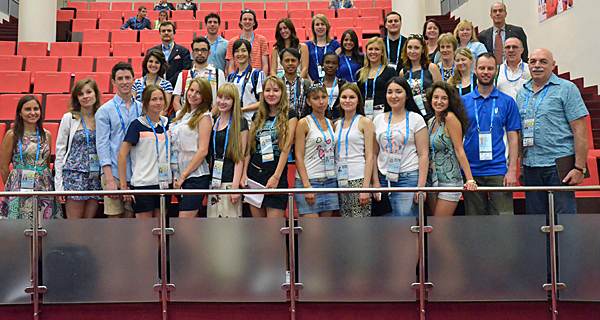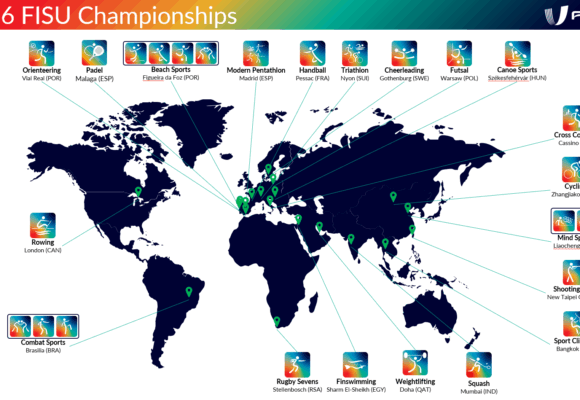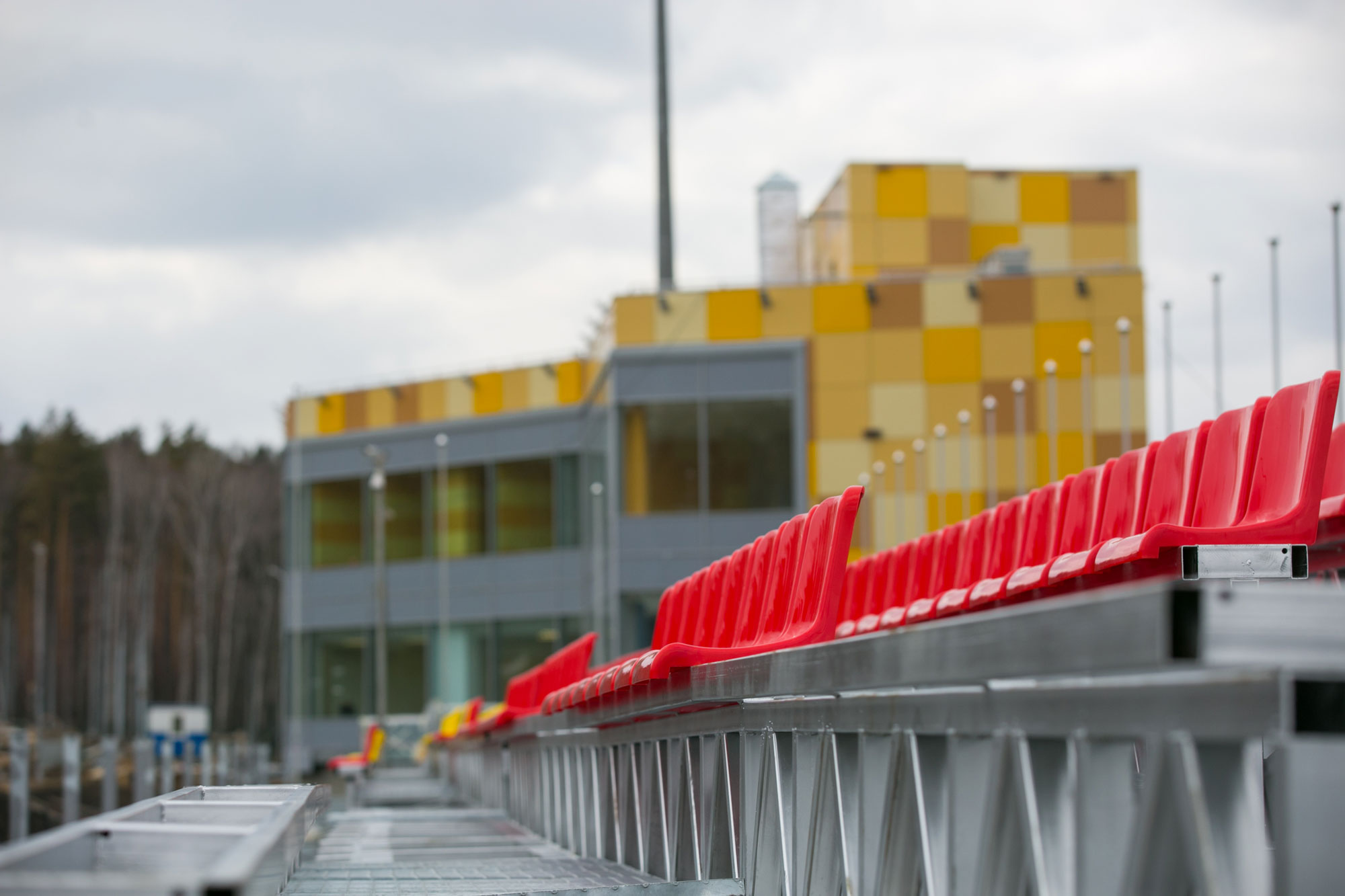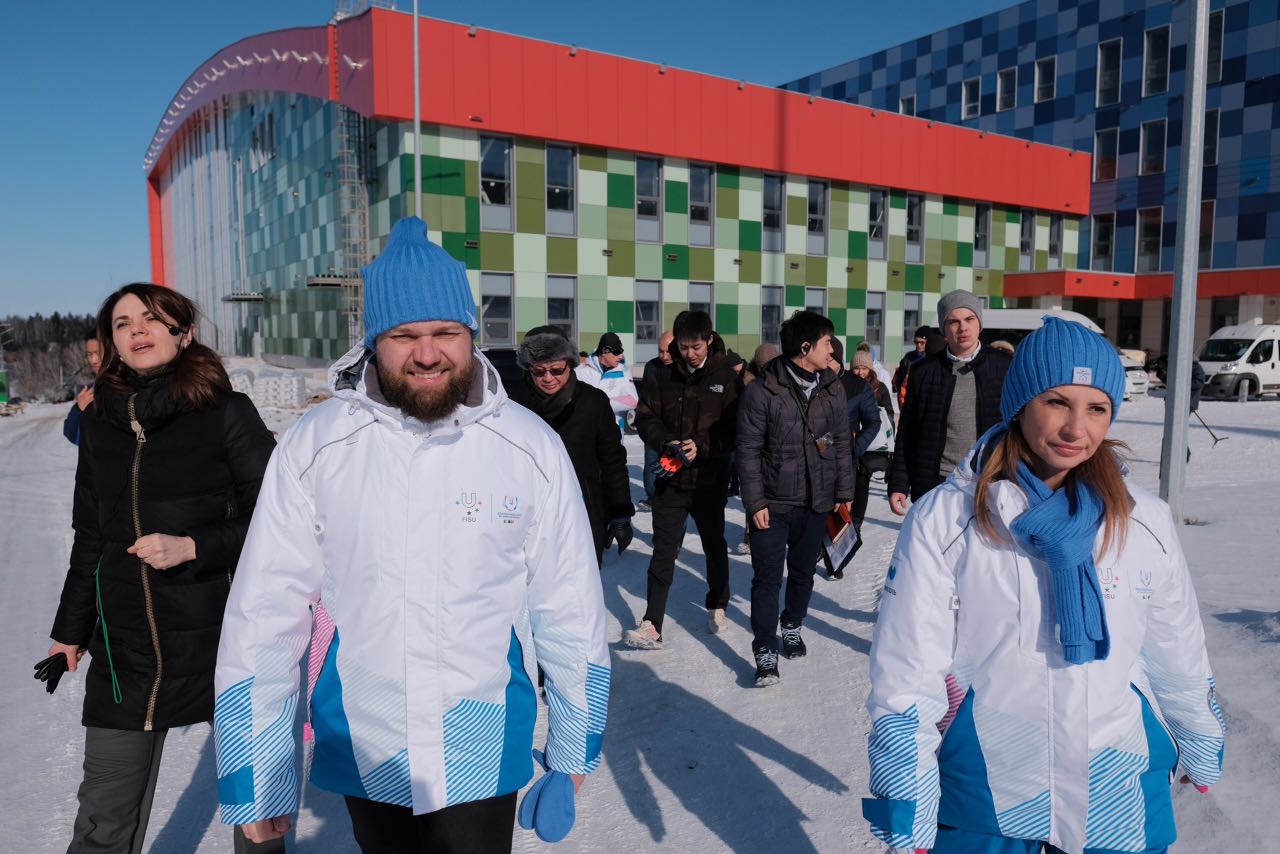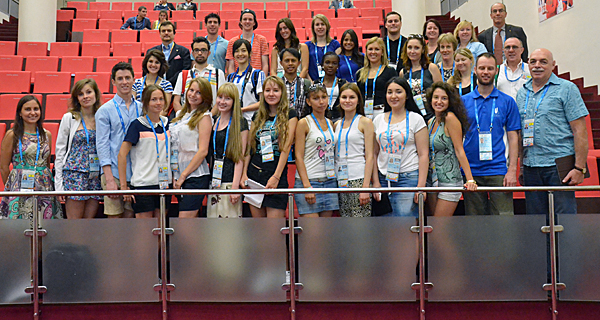
KAZAN – On July 6th, a couple of hours before the Opening Ceremony of the 27th Summer Universiade, the 2nd FISU Young Reporters’ Programme kicked off.
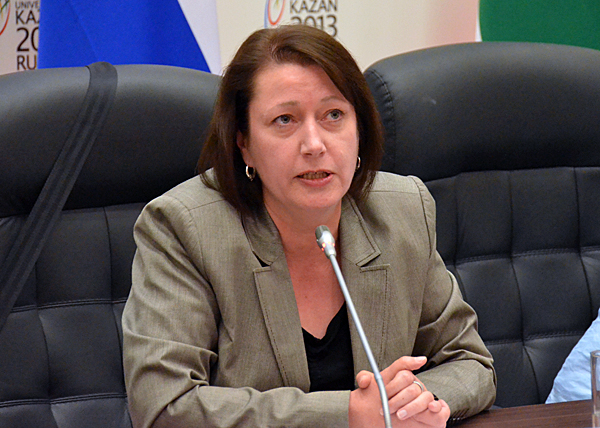 Verena Burk
Verena Burk
The FISU Young Reporters’ Programme provides young sport journalists with a unique training experience during FISU’s major multi-sport event: the Summer Universiade. At the Games in Kazan, twelve Russian young sports journalists will be joined by 12 of their peers from five continents: Africa, America, Asia, Oceania and Europe.
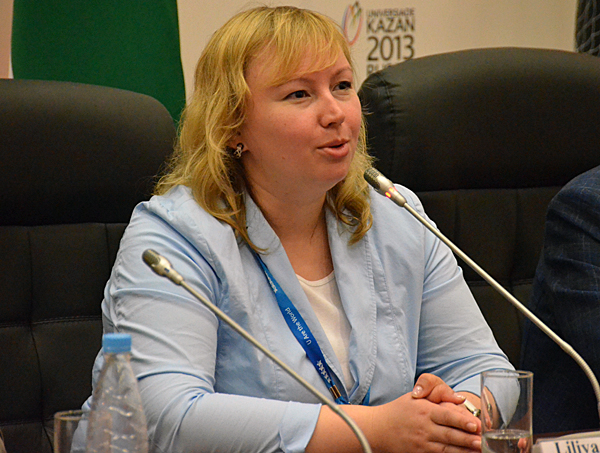 Lilya Barieva
Lilya Barieva
The Young Reporters’ Programme is organised jointly by FISU, the FISU International Education Centre and the Kazan 2013 Executive Directorate.
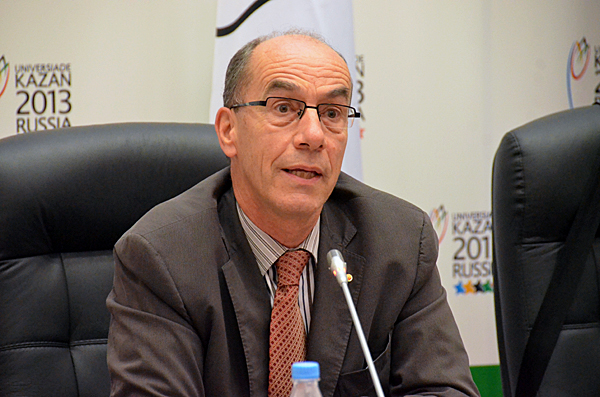 Leonz Eder
Leonz Eder
FISU EC member Verena Burk, Chair of the FISU Media & Communication Committee, FISU Vice-President Leonz Eder, FISU IEC Director Lilya Barieva and Yusup Yakubov, Rector of the Volga Region State Academy of Physical Culture, Sport and Tourism shared the rostrum to introduce the programme and address the youngsters.
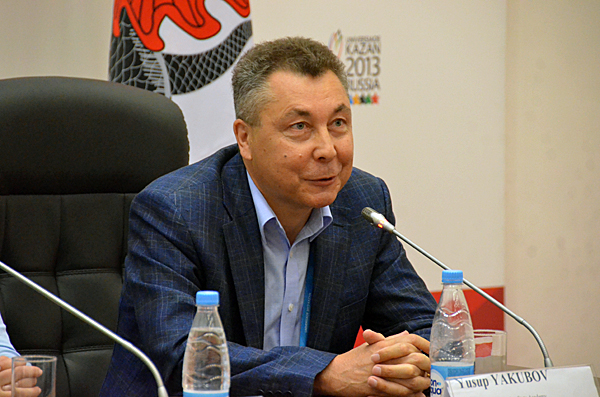 Yusup Yakubov
Yusup Yakubov
The Opening Ceremony was also attended by FISU 1st Assessor Alison Odell, Chair of the Education Committee.
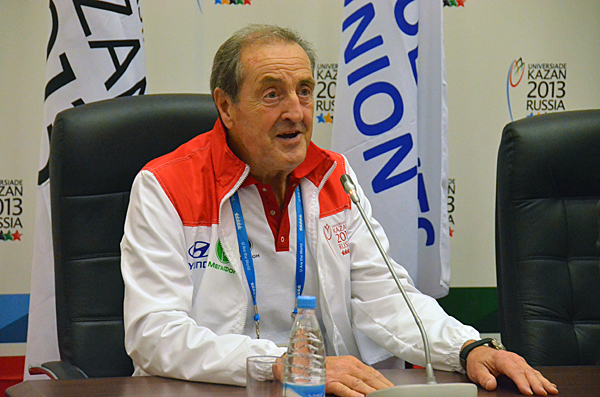 Claude-Louis Gallien
Claude-Louis Gallien
FISU President Gallien made a surprise visit on his way to being a torch bearer. ‘FISU is so much more than sports. You are an important part of our education programme’, the FISU President said. ‘We need you in the future to report on our activities. Remember the Universiade is for students. For the first time, students will award medals to student-athletes during the medal ceremonies. In any sense, this Universiade will be historical!’
C. Pierre, Press Officer
